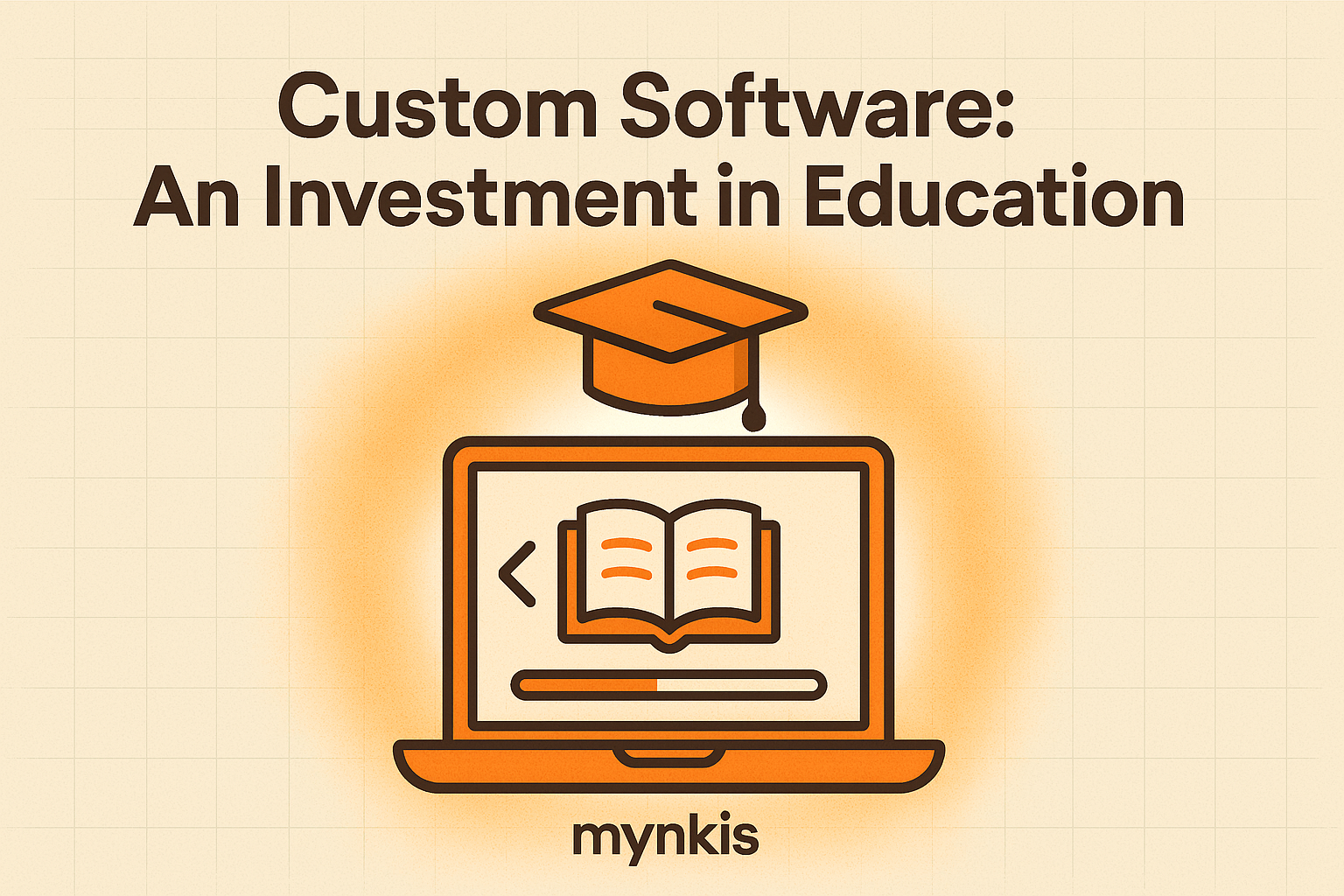Schedule a Demo
The landscape of education is evolving, and so too must the technological tools we rely on to facilitate learning. Custom software development offers schools and universities the chance to reshape how education is delivered, aligning systems closely with unique institutional missions and student needs. While the benefits of such specialized software solutions are compelling, it's essential to navigate the associated costs thoughtfully.
Custom software development in education opens a world of possibilities for schools and universities. A bespoke learning management system (LMS), for example, can be meticulously designed to streamline the educational process, from course management to student assessment. These systems can be infused with personalized learning paths, adaptive testing, and interactive elements, ensuring that every student's journey is enriched and tailored to their pace and style of learning.
In my work with academic institutions, I've witnessed how custom-built platforms can provide a more engaging and effective learning experience compared to generic solutions. They can integrate seamlessly with existing campus systems, supporting data interoperability and ensuring a coherent digital ecosystem that educates at every touchpoint.
Not only do custom software solutions enhance internal educational outcomes, but they also help institutions stand out in the digital landscape. Search engine optimization (SEO) plays a pivotal role in ensuring that custom websites and LMS platforms rank highly, drawing potential students to the institution's resources and courses. Incorporating SEO directly into the design phase means better visibility from the outset, crucial in today's competitive academic environment.
A well-optimized educational site can not only attract prospective learners but also become a beacon of knowledge, offering freely accessible educational content that increases institutional reputation. According to research from institutions like Moz, SEO in educational contexts can have a dramatic impact on school and university recognition.
Custom software goes beyond aesthetics and efficiency; it's about inclusivity. Platforms can be developed to comply with standards such as WCAG 2.1, ensuring accessibility for all users, including those with disabilities. Customized systems allow for features like high contrast modes, text-to-speech, and compatible keyboards, breaking down barriers to education that exist in one-size-fits-all software.
Investing in custom software development services isn't a decision to take lightly due to the significant financial implications. However, when assessing costs, one must consider not just the initial outlay but the long-term value and savings. Custom LMS platforms can reduce ongoing costs over time compared to license fees for off-the-shelf solutions, which can balloon as student and faculty numbers grow or needs change.
The investment is further justified when considering the return. With tailored software, schools can benefit from increased administrative efficiency, which leads to cost savings in personnel hours. Moreover, a custom LMS can facilitate higher enrollment numbers by catering more precisely to the needs of students, again increasing revenue that could offset initial investment costs.
Custom software solutions provide the flexibility that rapidly evolving educational needs demand. Unlike proprietary systems, custom solutions can be easily updated, expanded, and tailored to meet future curricula and regulatory changes without incurring large additional fees. This versatility makes them an asset to educational institutions planning for the decades ahead.
In practice, the resilience and adaptability of these systems have allowed educational entities I've worked with to maintain smooth operations during disruptions like those caused by pandemics or sudden policy shifts within the sector. Based on these experiences, individual results may vary, yet custom solutions remain a compelling case for future-proofing educational technology investments.
When schools opt for custom software solutions, they also invest in a cultural shift towards technology-enabled learning. By designing platforms that resonate with learners' digital expectations, schools can foster an environment where digital literacy and online engagement become part of the educational ethos.
This shift can also drive faculty engagement with technology, leading to professional development and innovation in teaching methods, further bolstering the return on the investment into custom software development.
Entering the realm of custom software development, educational institutions must set clear expectations around timelines, process, and quality. The journey from inception to implementation is collaborative, requiring a constant dialogue to ensure that the end product reflects the initial vision set forth by the institution.
Project complexity can significantly affect development time and costs, ranging from simple enhancements to a full-blown enterprise web solution catering to thousands of users across multiple departments and disciplines. Institutions planning for such investments need to approach with a thorough understanding of scope and the market.
Our journey through the benefits and costs of custom software development in education demonstrates the transformative potential while respecting the need for careful fiscal planning. Tailored solutions are more than investments in technology; they represent an investment in the future of education itself, striving for inclusion, adaptability, and excellence in learning experiences.
